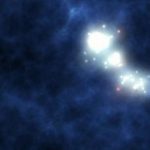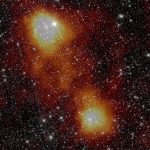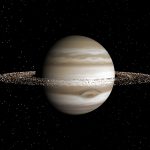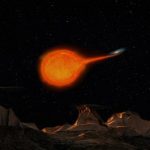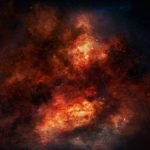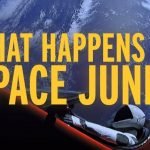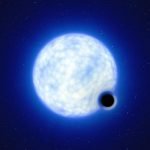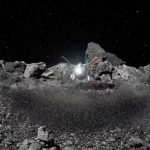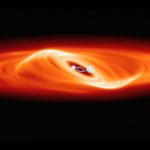Novel way to see first stars through fog of early Universe
Astronomers have developed a method that will allow them to ‘see’ through the fog of the early Universe and detect light from the first...
Astronomers are finding the missing universe
Astronomers at the University of Toronto have spotted some of the most elusive stuff in our universe by taking a deep look at the...
How do galaxies evolve?
A University of Massachusetts Amherst undergraduate student has contributed significant work regarding the growth of stars and black holes, providing key insight into how...
Why Jupiter doesn’t have rings like Saturn
Because it’s bigger, Jupiter ought to have larger, more spectacular rings than Saturn has. But new UC Riverside research shows Jupiter’s massive moons prevent...
Scientists find new way to detect exoplanets
In recent years, many exoplanets have been found around single "normal" stars. New research shows that there may be exceptions to this trend.
Researchers from...
New study reveals the true nature of dark galaxies in the early Universe
Utilizing multiple radio telescopes across the world, astronomers have discovered several galaxies in the early Universe that, due to massive amounts of dust, were...
Does space trash ever naturally break down
Remember when Elon Musk launched a car into space?
That car’s not just peacefully drifting through a vacuum — it’s hurtling around the sun at...
Black hole police discover a dormant black hole outside of the Milky Way galaxy
Scientists have found a dormant stellar-mass black hole in the Large Magellanic Cloud, a galaxy that neighbors the Milky Way.
The team includes Kareem El-Badry...
Taking asteroid sample was like punching a ball pit
Asteroid Bennu, the target of NASA's OSIRIS-REx asteroid sample return mission, led by the University of Arizona, kept surprising the mission team while the...
Scientists find two rare binary star systems
Astronomers have identified only the second and third examples of a rare type of star system comprising two central stars orbiting each other, encompassed...

